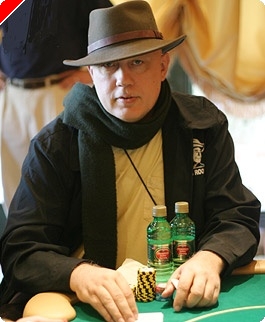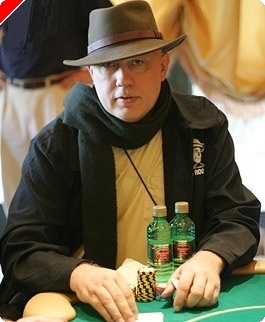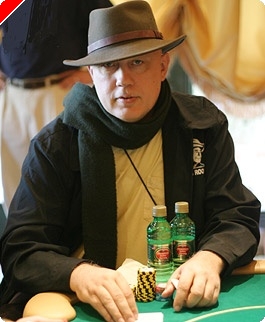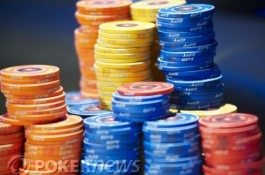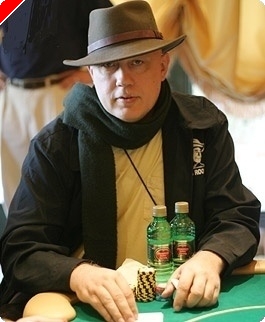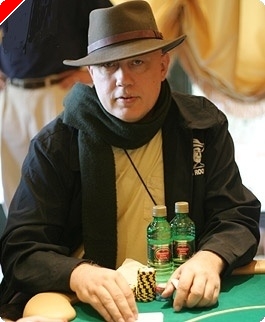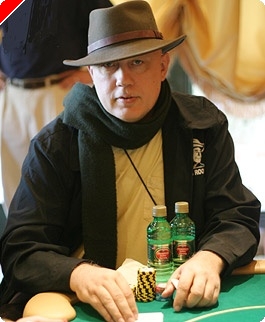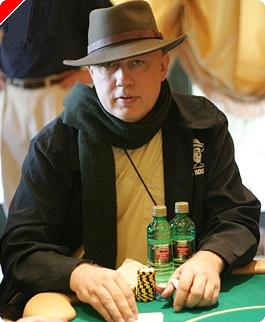Inside the Poker Tour, Vol. 97: Phillip Hilm, Part One
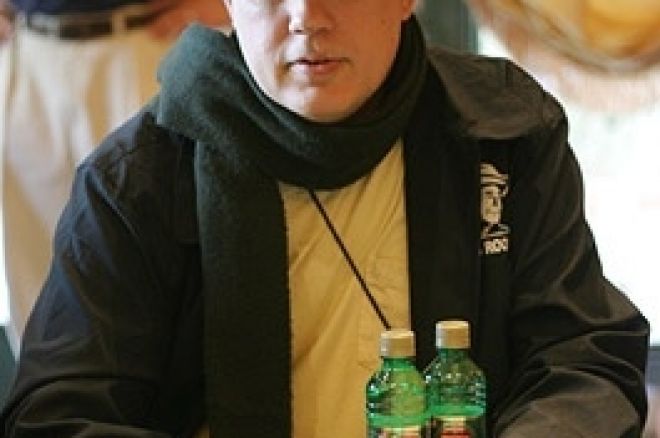
Nearly two years ago at the Copenhagen European Poker Tour event I played at a table where a young man was the media favorite of passers-by. He was filmed and asked questions in several languages, always answering politely. I found his style to be somewhat different and very interesting. That isn't something I'm likely to say very often!
In this case he began a lot of hands (often bringing it in with a raise) and when he was re-raised he stared at the re-raiser it like someone who wanted to see a printout of what was in their soul. Then he would stare off into space, and if reminded that it was his turn to act would say something like, "I know." and return to his gaze that seemed to have some occult or futuristic purpose, and then he would act��sometimes folding, sometimes moving all-in. As with Phil Ivey it was hard for me to get anything in the way of a meaningful read as he acted the same way with his weak hands and his strong hands��or, in any case, I assumed that he did. Never in a hurry to act, but always acting within acceptable time boundaries.
So later I exchanged email addresses with him and wished him the best, expecting him to do well in Europe, but not expecting to see him in America, and then something else happened��he went to the final table of the Main Event at the World Series of Poker in Las Vegas, the one that decides who the World Champion for the coming year is.
He went in as the favorite, or as my favorite anyhow, and with the chip lead on top of it. The way which Hilm got those chips, and his duel with Scotty Nguyen have been seen countless times on American television. As has his last hand of that event where he chose to move all-in on a check raise from the blind with what most of us would call a semi-bluff, and an 8?5?, with a pair and a flush draw on the existing lay-out of K?J?5?2?. No one had stood up to Jerry Yang to that point in time, and he was the first, although not the last, as the 6? fell off on the river and sent Philip to the rail (Yang had A? K?). If Jerry has a lesser hand it's much harder for him to call in this spot, let's give him AJ, or jack-any, or KT or worse, or QQ��can he stand this all-in then? Even as it was I'm sure that he hated to be check raised for essentially his tournament life.
How did Philip Hilm arrive at this juncture, where he became the aggressor? Let's go back in time to a few key hands that shaped his later actions��
First we travel to Casino Copenhagen, European Poker Tour, Season 2, January, 2006. Four players are left in the main event and both Philip and Mads Andersen have a lot of chips. The blinds are 15,000 and 30,000 with antes of 3000 and there are four players left (this hand is available to see on YouTube under the 'Art of Bluffing'��although you can ignore the pot totals which a computer is likely setting and is, in all cases, wrong).
The first two players pass and now Philip calls from the small blind with 9?5? and Mads checked the big blind with Q?4?. It now comes 3?3?8? and Philip checked and Mads bet 40,000. Philip check-raised to 120,000 and Mads shuffles his 5000 dollar chips a few times and then raises to 280,000, with Philip, after ascertaining that it is 160,000 more to call, does call. The turn brings the 6? and now Philip has a flush draw and a straight draw, but after he checks Mads moves all-in for 548,000 (into a pot of 572,000) and the loser will maybe have chump change left, but is effectively all-in. Philip, with a 41% chance of winning as the cards lie(with one to come), is suddenly locked out of a hand that he has a part of, and that somehow he should win, but loses now as he can't call with a hand that can't even beat most bluffs and is an underdog to almost any hand. What I am trying to say is how many of us would call with a hand that is almost surely behind, even if our opponent is bluffing, if we have enough chips to play on?
Another example that certified his wanting to play aggressively and bet fearlessly with big hands and big draws is from the European Poker Tour final event in Monte Carlo. In this situation he is second in chips at this table to a very aggressive player who has shown a willingness to bluff all-in whenever he detects weakness.
Philip's hand is KQo and he calls a raise from the villain who is in middle position, it comes KQJ with two clubs and villain bets out (of course) and Philip decides to just call, expecting the villain to continue to bet no matter what card comes on the turn. This is a trapping call, to be completely clear about it, with some fear that the villain will fold if raised if he has nothing.
The turn brings an Ace of Hearts and now the villain bets 15,000 into a 30,000 dollar pot. This is mathematically perfect as it is also half of Philip's remaining stack of 30,000 (they started with 10,000 and Philip is at triple his starting chips and above average at the moment). Even if the villain has raised with T8 here he has the nuts and what is Philip going to do if he calls 15,000 and the guy moves all-in on the river? Lay it down and go to a below average stack? Call and hope the guy is bluffing? What if the guy raised with a "weak hand" like AJo? Suddenly the guy has turned a loser into a likely winner. The thoughts and doubts continue to arise and Philip lays it down at last. The villain shows his bluff, er cards, to a friend and is asked to show everyone, he flips 9?7? up in the center of the board, showing a nine high flush draw. Would Philip have won by calling? We don't know for sure, but we do know that he was a substantial favorite to win with exposed cards. The other question is, of course, would the villain have enough moxie to move all-in if he missed his draw? Would Philip have had the courage to call him for his tournament life? None of this is known, and we are left guessing, but it's easy to imagine how these key hands changed the way he played going into the future.
In the closing lines from the movie "The Cincinnati Kid" starring Edward G Robinson and Steve McQueen 'the man' (Robinson) says something to the effect of, "That's what poker is all about, kid - playing the wrong hand at the right time." I might have an inexact quote, but the intention is clear, and the truth of this nugget is self obvious.
Until next time, play good��and be lucky!

